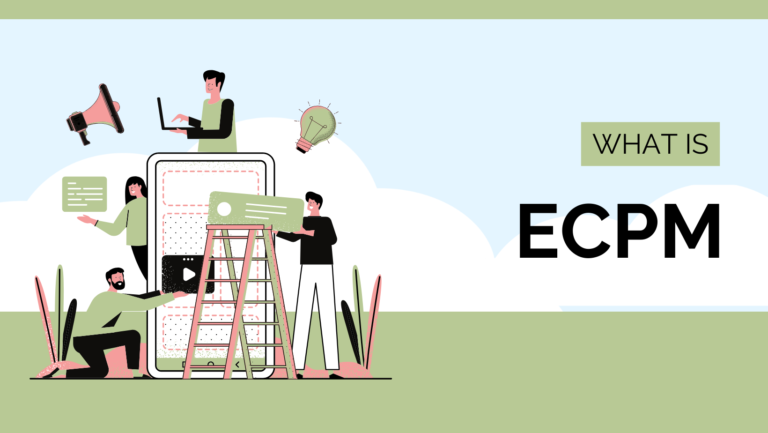9 Types of Backlinks You Need to Know for SEO
In the ever-evolving landscape of search engine optimization (SEO), few strategies hold as much power as backlinks. Backlinks, or inbound links, are the virtual threads that intricately weave together websites across the vast expanse of the internet. Acting as indispensable bridges, they guide users and search engine bots from one digital corner to another, enhancing navigation and discoverability. However, their significance transcends navigation alone. Backlinks are the very currency of credibility in the digital realm, fundamentally shaping a website’s authority, ranking, and, in the grand scheme of things, its resounding success.
In this dynamic online arena, where algorithms perpetually evolve, the concept of buying backlinks emerges as a cautionary note. While some advocate for the quick boost these purchased links can offer, the ethical concerns and potential pitfalls of such practices underscore the importance of acquiring relevant backlinks organically. The latter not only carries more weight in the eyes of search engines but also aligns seamlessly with the overarching principles of integrity and sustainable growth that should underpin every successful SEO strategy.
What Are Backlinks?
Imagine a vast and intricate network of websites as a complex web of relationships. Backlinks, acting as the connecting threads, intricately weave this network together. A backlink is essentially a link on one website that directs visitors to another. By featuring such a link, a website is essentially conveying, “Hey, this content is valuable, informative, or relevant—take a look!” This interweaving of connections forms the backbone of the online ecosystem, and search engines, led by Google, interpret these links as powerful votes of confidence, thereby establishing them as indicators of a page’s significance, importance, and overall worthiness.
In the realm of SEO, understanding the strategic importance of backlinks and their intricate placement on websites is crucial. Backlink management, therefore, becomes an art of its own, requiring careful curation and thoughtful consideration to ensure optimal visibility, credibility, and authority.
Why Are Backlinks Important?
In the intricate dance between websites and search engines, backlinks play the role of both influencers and followers. Search engines, like Google, interpret backlinks as endorsements, a way for one website to vouch for another. The more reputable websites vouch for your content through quality backlinks, the more authoritative and trustworthy your website appears in the eyes of search engines. This, in turn, leads to higher rankings, increased visibility, and more organic traffic. The impact is profound, contrasting starkly with the ill-reputed mass page backlinks that can tarnish a website’s credibility.
What Are Dofollow Backlinks?
Dofollow backlinks are like the VIP passes of the internet. When a website includes a do follow link to another site, it’s essentially inviting search engine crawlers to explore that link. This exploration transmits what’s known as “link juice,” a metaphorical elixir of credibility, relevance, and authority. The more high-quality do follow links a website garners, the more it positions itself as an authoritative figure in its field, signaling to search engines that its content is worth showcasing.
What Are Nofollow Backlinks?
Picture nofollow backlinks as a gentle reminder to search engine bots that not every link should be followed. These links contain a special HTML attribute called “nofollow,” essentially telling search engines, “Don’t pass on the link juice.” Nofollow links emerged as a measure to prevent spammy link-building tactics. While they might not directly contribute to a website’s authority, they still hold value in terms of driving direct traffic and brand exposure.
What are the Different Types of Backlinks
Natural Backlinks
Natural backlinks are links earned organically without solicitation. These links are a testament to quality content, indicating trust and credibility to search engines. They enhance SEO by signaling to algorithms that the site is a reliable resource, contributing to higher rankings.
Editorial Backlinks
Editorial backlinks are acquired when another website, typically a high-authority domain, references your content naturally within its editorial context. They significantly impact SEO, often seen as a vote of confidence, boosting your site’s credibility and relevance.
Guest Blogging Backlinks
Guest blogging involves contributing content to other websites in your niche, allowing a backlink to your site within the content. Leveraged effectively, guest blogging not only builds links but also establishes authority and expands reach.
Profile Backlinks
Profile backlinks are links from profile pages on various platforms like forums, social media, or directories. Utilize profile backlinks by ensuring profiles are complete, updated, and relevant to your niche.
Comment Backlinks
Comment backlinks are acquired by engaging with blogs or forums, and leaving comments that include your website link. While they can diversify link profiles, they should be relevant and genuine to avoid being considered spam.
Web 2.0 Backlinks
Web 2.0 backlinks are from user-generated content platforms like Blogger, WordPress, or Medium. These platforms offer an opportunity to create content and include links, contributing to SEO strategies by diversifying backlink profiles and generating traffic.
Understanding these backlink types and utilizing them strategically contributes significantly to a robust SEO strategy, improving visibility and credibility online.
Backlink Building Strategies
1. Quality Content Creation
– Produce valuable, engaging content that naturally attracts backlinks.
– Aim for unique, informative, and shareable content to entice other sites to link back.
2. Leverage Guest Blogging
– Contribute high-quality content to authoritative sites in your niche.
– Ensure your guest posts provide value and relevance to the hosting site’s audience.
3. Outreach and Networking
– Forge relationships with industry influencers, bloggers, and webmasters.
– Engage in meaningful conversations, collaborations, and partnerships for potential backlink opportunities.
4. Broken Link Building
– Identify broken links on other sites related to your content.
– Offer your content as a replacement, providing value while securing a new backlink.
5. Content Promotion and Sharing
– Actively promote your content through social media, newsletters, and outreach to gain visibility.
– Encourage others to share your content, increasing the likelihood of earning backlinks.
6. Directory and Resource Listings
– Submit your site to reputable directories and industry-specific resource lists.
– Ensure the directories are legitimate and relevant to your niche or industry.
7. Monitor and Analyze
– Regularly monitor your backlink profile for any toxic or spammy links.
– Analyze the performance of acquired backlinks to refine your strategy for better results.
By integrating these link building strategies for SEO into your approach, you can systematically enhance your backlink profile, bolstering your site’s authority and visibility across search engines.
9 Best Types of Backlinks
- Editorial Links: Editorial links are the gold standard of backlinks. Editorial links are earned organically when other websites find your content so valuable that they link to it without any prompting. They’re a testament to your content’s quality and relevance.
- Forum Backlinks: Active participation in relevant forums can result in forum backlinks. These links can drive targeted traffic and establish your authority in niche communities.
- Guest Post Backlinks: By crafting high-quality guest posts for authoritative websites in your industry, you can secure not only a platform but also a high-value backlink.
- Paid Backlinks (with Caution): Purchasing backlinks can be a slippery slope. While some paid links are legitimate and can positively impact your SEO, Google strictly warns against manipulative link-buying practices.
- Social Media Backlinks: Although often nofollow, links shared on social media platforms can amplify your content’s reach, leading to increased brand exposure, engagement, and indirect traffic.
- Edu and Gov Backlinks: Backlinks from educational (.edu) and governmental (.gov) websites are highly sought after due to their authoritative nature.
- Business Directories: Relevant business directories can offer not only exposure to your local audience but also high-quality backlinks from reputable sources.
- Content Aggregator Backlinks: Sharing your content on platforms like Reddit, Hacker News, or GrowthHackers can lead to sudden spikes in traffic and valuable backlinks from engaged communities.
- Backlink Services (with Caution): Some backlink services promise quick wins, but it’s essential to tread carefully. Choose services that prioritize quality links over quantity and adhere to ethical practices.
Wrap Up
The journey through the labyrinth of backlinks is not one to be taken lightly. Diversifying your backlink portfolio with the various types mentioned above can provide your website with the authority and visibility it craves. Yet, while the allure of backlinks is strong, they should be an integral part of a broader SEO strategy that encompasses high-quality content creation, technical optimization, and user-centric design.
In the grand symphony of SEO, backlinks are the resounding crescendo that can elevate your website’s melody to new heights. So, build relationships, foster connections, and remember that while backlinks are the stars of this performance, it’s the harmony of the entire ensemble that truly creates a masterpiece.
FAQs
- What exactly are backlinks, and why are they crucial for SEO?
Answer: Backlinks are links from one website to another. They act as endorsements, indicating a webpage’s credibility. Search engines use backlinks to assess a site’s authority and relevance, influencing its search engine rankings. - How do I differentiate between dofollow and nofollow backlinks?
Answer: Dofollow backlinks allow search engine bots to follow the link and pass on “link juice.” Nofollow backlinks include an HTML attribute that tells search engines not to follow the link. Dofollow links contribute to SEO, while nofollow links can still drive traffic.
- Are all types of backlinks equally valuable for SEO?
Answer: No, not all backlinks carry the same weight. Editorial, forum, guest post, and niche-relevant backlinks are generally more valuable than mass page or paid backlinks. Context, authority, and relevance matter.
- How do I know which type of backlink to focus on for my website?
Answer: Your choice of backlink type should align with your website’s goals and content. If you’re an expert in your field, guest post or editorial backlinks might be suitable. For local businesses, business directory links can be valuable.
- Can I solely rely on backlinks for SEO success?
Answer: While backlinks are crucial, they’re just one piece of the SEO puzzle. Quality content, technical optimization, user experience, and other factors also influence search engine rankings. A holistic approach is key to long-term success.







